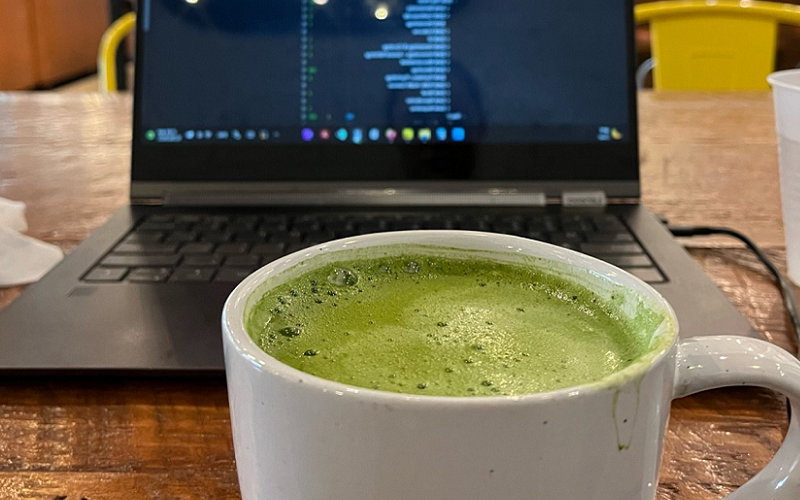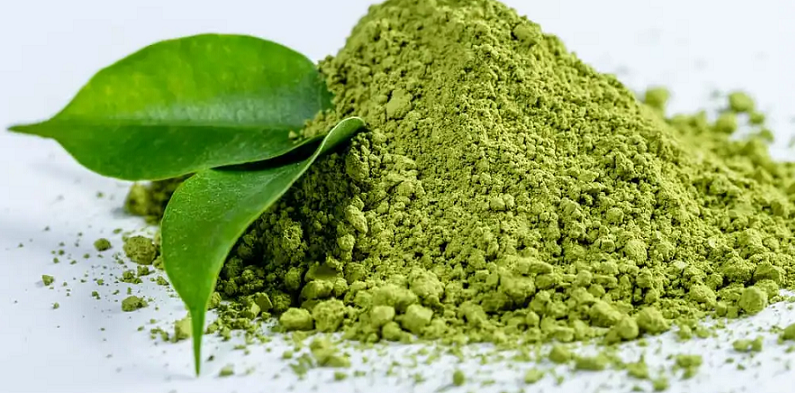
In our fast-paced and ever-evolving world, the ability to improve memory and learning is not just a desire but often a necessity. L-Theanine, a lesser-known yet powerful nootropic, offers a promising avenue for those seeking to boost their cognitive functions. L-Theanine, a naturally occurring compound, is especially well-known for improving memory and enhancing learning.
Contents
L-Theanine and the Brain
In our quest to understand how L-Theanine can be harnessed for cognitive enhancement, it’s crucial to start at the very beginning – by comprehending what L-Theanine is and what it does.
Definition and Origin of L-Theanine
L-Theanine is a fascinating amino acid predominantly found in certain plant and fungal species. It’s most famously known as a constituent of green tea leaves, where it was first discovered. Historically, green tea has been celebrated for its calming and rejuvenating effects, which are now partially attributed to the presence of L-Theanine. Unlike many other amino acids, L-Theanine is not commonly found in the human diet, making its sources and supplementation particularly interesting for those seeking its benefits.
The chemical structure of L-Theanine is similar to that of glutamate, a neurotransmitter in the brain, which allows it to cross the blood-brain barrier effectively. This structural similarity plays a crucial role in how L-Theanine interacts with brain chemistry. In terms of its properties, L-Theanine is water-soluble, which aids in its absorption when consumed through tea or supplements. This solubility also means it can start acting relatively quickly, often within 30 minutes of ingestion.
L-Theanine Mechanism of Action in the Brain
L-Theanine exerts its effects on the brain in several fascinating ways. Its structure allows it to cross the blood-brain barrier, a critical factor in its effectiveness. Once in the brain, L-Theanine influences levels of various neurotransmitters, chemicals that neurons use to communicate with each other.
It’s known to increase the production of GABA, a neurotransmitter that has a calming effect on the brain. This increase in GABA can lead to reduced anxiety and a sense of relaxation without drowsiness. L-Theanine also affects dopamine and serotonin, neurotransmitters associated with mood, concentration, and emotion regulation [1].
Impact of L-Theanine on Neurotransmitters
The impact of L-Theanine on neurotransmitters is significant because these chemicals are integral to the brain’s functioning. By modulating neurotransmitter levels, L-Theanine can influence mood, alertness, and stress levels. The increase in GABA, in particular, is believed to be responsible for the calming effect of green tea, despite the presence of caffeine. This unique ability to relax the mind without sedation is part of what makes L-Theanine so appealing for cognitive enhancement.
The Role of L-Theanine in Cognitive Function
L-Theanine’s impact on cognitive function is multi-faceted. By promoting a relaxed but alert state, it can improve focus and attention, particularly in situations where stress and anxiety might otherwise hinder performance. This makes L-Theanine particularly interesting for students or professionals in high-pressure environments.
Additionally, its influence on neurotransmitters suggests potential benefits for memory and learning. The improved focus combined with a calm state of mind creates an ideal environment for learning new information and recalling it later [2].

L-Theanine for Memory Enhancement
Moving beyond the general brain functions, we now focus specifically on how L-Theanine can enhance memory.
Scientific Studies and Findings Involving L-Theanine for Memory Enhancement
Several studies have shed light on L-Theanine’s ability to enhance memory. For instance, research has shown that L-Theanine can improve the efficiency of brain function, particularly in the areas associated with memory. These studies often involve tasks that require participants to remember information over short and long periods.
The results have been promising, indicating that L-Theanine supplementation can lead to better performance on memory-related tasks. This is particularly true in contexts where stress and anxiety are factors, as L-Theanine’s calming effects can prevent these from becoming impediments to memory retention and recall [3].
How L-Theanine Improves Memory
The mechanism behind L-Theanine’s memory-enhancing capabilities is linked to its ability to modulate neurotransmitters and improve brain function. By promoting a state of relaxed alertness, L-Theanine may help individuals focus better on the task at hand, which is crucial for learning and memory. Additionally, its impact on neurotransmitters like serotonin and dopamine can influence cognitive processes related to memory formation and retrieval. The calming effect on the nervous system also means that L-Theanine might help in reducing the negative impact of stress and anxiety on memory.
Personal Testimonies and Case Studies of L-Theanine and Memory Enhancement
Beyond scientific studies, numerous personal testimonies and case studies have supported the effectiveness of L-Theanine in memory enhancement. Individuals who have incorporated L-Theanine into their routines often report improved focus and memory recall, particularly during high-pressure periods. These anecdotal evidences, while not as rigorously tested as clinical trials, provide real-world insights into the potential benefits of L-Theanine for memory improvement [4].
L-Theanine in Learning Processes
Having explored L-Theanine’s impact on memory, it’s important to consider its influence on the broader spectrum of learning processes.
L-Theanine Enhances Learning Abilities
L-Theanine’s role in enhancing learning abilities is closely tied to its effects on brain chemistry and overall cognitive function. The amino acid’s ability to induce a state of calm alertness is particularly beneficial for learning. This state enables individuals to maintain focus and concentration over extended periods, which is crucial for absorbing and understanding new information.
Furthermore, the reduction in stress and anxiety levels thanks to L-Theanine can make the learning process more efficient and enjoyable. These factors, combined with improved memory retention, create an optimal environment for both academic and professional learning [5].
Studies Supporting L-Theanine’s Role in Learning
Various studies have highlighted the positive impact of L-Theanine on learning. For instance, research involving tasks that require sustained attention and complex problem-solving skills has shown that L-Theanine can significantly improve performance. These benefits are attributed to its ability to modulate key neurotransmitters that influence cognitive function and stress response. Such studies underscore the potential of L-Theanine as a natural aid for enhancing learning capacities, particularly in high-pressure or challenging learning environments.
Comparison of L-Theanine with Other Nootropics
When comparing L-Theanine to other nootropics, its unique properties become evident. Unlike stimulant-based nootropics, which primarily focus on increasing alertness and energy, L-Theanine offers a more balanced approach. It improves focus and cognition without the side effects commonly associated with stimulants, such as jitteriness or a subsequent crash. Additionally, its ability to simultaneously reduce stress and anxiety distinguishes it from many other cognitive enhancers, making it a valuable tool for those who need to maintain mental clarity under pressure while learning.
References
[1] L-Theanine’s Effects On Learning and Memory In College Students
[2] Effects of l-Theanine on Cognitive Function in Middle-Aged and Older Subjects
[3] L-Theanine
[4] Effects of l-theanine on attention and reaction time response
[5] The Effects of Oral L-Theanine on Short-Term Memory

